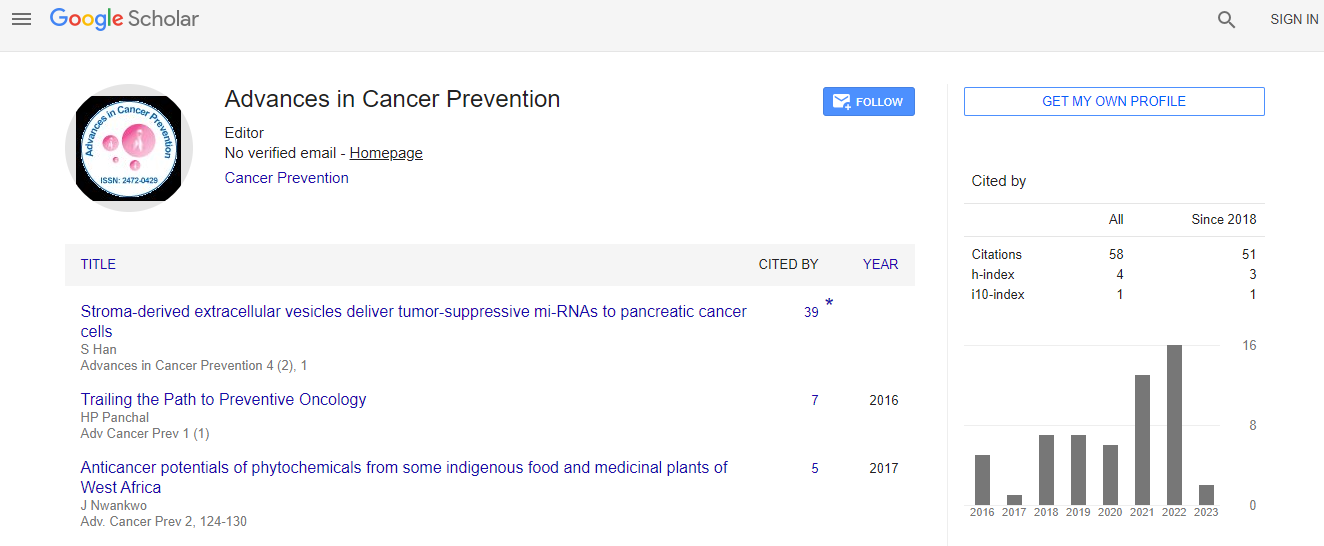Research Article
Receptivity and Preferences for Lifestyle Programs to Reduce Cancer Risk among Lung Cancer Family Members
Lisa A Howell1, Tabetha A Brockman2, Pamela S Sinicrope1,2, Christi A Patten1,2*, Paul A Decker3,4, Allan Busta4, Shawn Stoddard4, Sheila R McNallan4 and Ping Yang41Department of Psychology and Psychiatry, Mayo Clinic, Rochester, MN 55905, USA
2Behavioral Health Research Program, Mayo Clinic, Rochester, MN 55905, USA
3Department of Medical Genetics, Mayo Clinic, Rochester, MN 55905, USA
4Department of Health Sciences Research, Mayo Clinic, Rochester, MN 55905, USA
- *Corresponding Author:
- Christi A Patten
Behavioral Health Research Program, Mayo Clinic, 200 First Street SW
Rochester, MN 55905, USA
Tel: 507-538-7370
Fax: 507-266-2478
E-mail: patten.christi@mayo.edu
Received date: June 07, 2016; Accepted date: July 13, 2016; Published date: July 20, 2016
Citation: Howell LA, Brockman TA, Sinicrope PS, Patten CA, Decker PA, et al. (2016) Receptivity and Preferences for Lifestyle Programs to Reduce Cancer Risk among Lung Cancer Family Members. Adv Cancer Prev 1:110. doi: 10.4172/2472-0429.1000110
Copyright: © 2016 Howell LA, et al. This is an open-access article distributed under the terms of the Creative Commons Attribution License, which permits unrestricted use, distribution, and reproduction in any medium, provided the original author and source are credited.
Abstract
Background: Lifestyle factors and genetic information has been found to contribute to the occurrence of lung cancer. This study assessed receptivity to participating in lifestyle programs to reduce cancer risk among unaffected lung cancer family members. We also explored demographic, medical, and psychosocial correlates of willingness to participate in lifestyle programs.
Methods: Family members who are part of a lung Cancer Family Registry were asked to fill out a survey assessing their receptivity to cancer risk reduction programs including preferences for an individual or family-based program.
Results: Of the 583 respondents, 85% were “Somewhat” or “Definitely” willing to participate in a lifestyle program. Among those receptive, about half (56%) preferred a family-based approach. Preferred programs included weight management (36%) and nutritional information (30%). Preferred delivery channels were Internet (45%) and mail-based (29%) programs. On multivariate analysis, those definitely/somewhat receptive reported greater exercise self-efficacy scores (p=0.025).
Conclusion: The majority of the sample was receptive to lifestyle programs that might decrease cancer risk. There was a large preference for family-based weight management and nutritional programs. Further research is indicated to determine how to best incorporate a family-based approach to lifestyle programs for cancer family members.

 Spanish
Spanish  Chinese
Chinese  Russian
Russian  German
German  French
French  Japanese
Japanese  Portuguese
Portuguese  Hindi
Hindi 